Top 8 Foods Rich in Minerals
Minerals are a diverse group of inorganic substances that play an enormous number of roles in the body. These can be found in the earth and food and are essential to life. They provide our body with number of function, including maintaining strong bones and teeth, normal nerve function, and building body tissues.
Minerals are divided into two categories based on how much the human body needs. Macrominerals and trace minerals. You need larger amounts of macrominerals. They include calcium, phosphorus, magnesium, sodium, potassium, chloride and sulfur. You only need small amounts of trace minerals which include iron, manganese, copper, iodine, zinc, cobalt, fluoride and selenium (1).
In observational studies it was found that people with a high intake of antioxidant vitamins by regular diet or as food supplements generally have a lower risk of major chronic disease, such as myocardial infarction or stroke, than people who are low consumers of antioxidant vitamins (2).
Since minerals are an essential part of a healthy diet, it is important to learn which foods are good sources of these nutrients. Here are 8 food rich in minerals.
1. Cruciferous vegetables
Broccoli is a rich source of vitamins, minerals, and antioxidants. Antioxidants can help prevent the development of various conditions. Which include reducing the risk of cancer, Improving bone health, Boosting immune health, Improving skin health, Reducing inflammation and many more.
The organosulfur chemicals namely glucosinolates and the S-methyl cysteine sulphoxide found in broccoli in concert with other constituents such as vitamins E, C, K and the minerals such as iron, zinc, selenium and the polyphenols namely kaempferol, quercetin glucosides and isorhamnetin are presumably responsible for various health benefits of broccoli (4).
Cruciferous vegetables are a good source of many other minerals, including magnesium, potassium, manganese, and calcium (5)
How to add them: You can simply enjoy them raw in your green salad to give the nutrients a big boost, add chopped cruciferous veggies to soups, stews, and casseroles. However it is not advisable to overcook cruciferous vegetables. They can produce a strong sulfur odor and become unappealing.
The following nutrition information is provided by the USDA for one cup (91g) of raw, chopped broccoli.
- Calories: 31
- 0.3 gram of fats
- 30mg of sodium
- 6 gram of carbohydrates
- 2.4 gram of fiber
- 1.5 gram of sugar
- 2.5 gram of protein
2. Avocados
Avocados are one of the best source of monosaturated fats, fibre, vitamin C, vitamin B6, vitamin K, folates, and antioxidants, making them excellent for heart health. One medium avocado will also provide you with 630mg of potassium!
In a A review of 33 studies of 128,644 people it was found that higher potassium intake was associated with a 24% reduced risk of stroke and reduction in heart disease risk factors like high blood pressure levels (7).
How to add them: You can simply enjoy them as spread, adding it to a salad, making Guacamole and enjoy with your favourite cracker. Or simply pulse them to make smoothie.
According to the National Center for Biotechnology Information (NCBI), these are the nutrition facts for about one-half, or 68 grams (g), of an avocado:
- Calories 114
- 6 gram of dietary fibre
- 0.2 gram of sugar
- 345 milligrams of potassium
- 5.5 mg of sodium
- 19.5 mg of magnesium
- Monounsaturated fatty acids 6.7
3. Shellfish
Shellfish are low in calories and rich in protein and omega-3 fatty acids. This mineral is necessary for developing cells that make up your body’s immune defense. It also acts as an antioxidant, protecting against damage from inflammation (9).
Shellfish provide a concentrated source of zinc and make a smart choice for those at risk of developing a deficiency in this vital nutrient. However pregnant and breastfeeding women, older adults, and people with compromised immune systems should avoid raw or improperly prepared shellfish.
How to add them: You can simply enjoy them by adding some mussels into your next pasta dish, start your dinner with a cup of clam chowder or steam some clams to help increase your intake.
The following nutrition information is provided by the USDA for 3 ounces (85g) of raw oysters without the shell.
- Calories: 69
- 2 gram of Fat
- 90 mg of sodium
- 4.2 gram of carbohydrates
- 0 gram of fiber
- 8 gram of protein
4. Berries
Barriers are packed with phenolic compounds such as phenolic acids, flavonoids-flavonols, anthocyanins, tannins, and ascorbic acid that could help in the prevention of inflammation disorders, cardiovascular diseases, or have protective effects to lower the risk of various cancers (11)
Berries are also a good source of potassium, magnesium, and manganese. Potassium is an essential mineral that is really essential for many of the critical functions performed by body, potassium help in balancing fluid and electrolyte in the body, building healthy teeth and bones, and controlling the functions of the nervous system (11).
How to add them: You can enjoy them in your smoothie, toss them into your pancake batter or on top of your waffles, add them to your ice cream or frozen yogurt or add them into a healthy fruit salad.
Nutrition information for 1 cup (144g) of blackberries is provided by the USDA.
- Calories: 62
- 0.7 gram of fat
- 1mg of sodium
- 13.8 gram of carbohydrates
- 7.6 gram of fiber
- 7 gram of sugar
- 2 gram protein
5. Sardines
Sardines are an excellent source of EPA and DHA, which are two fatty acids that studies show the body uses to reduce inflammation. Sardines are an excellent source of vitamin B 12, vitamin D, and selenium. In addition to the vitamins listed above, sardines are also a great source of calcium. Calcium is extremely important because 99% of the body’s calcium is stored in the bones and teeth.
How to add them: You can simply enjoy them by grilling or fry them, adding them to salad, pair them with avocado, whisk some into tomato sauce, or simply mix them with pasta
The following nutrition information is provided by the USDA for 5 small sardines with bones (12g) canned in oil (drained).
- Calories: 125
- 7 gram of fat
- 184mg of sodium
- 0 gram of carbohydrate
- 0 gram of fiber
- 0 gram of sugar
- 14.8 gram of protein
6. Mushrooms
Mushroom has been shown by a wide range of studies that mushrooms contain components with outstanding properties to prevent or treat different type of diseases (12).
According to the National Cancer Institute the antioxidant content in mushrooms may help prevent lung, prostate, breast, and other types of cancer. Some studies have suggested that consuming choline can reduce the risk of some types of cancer, but at least one other study has indicated that it may increase the risk of prostate cancer
How to add them: You can add them simply by grilling, baking, broiling, sauteing, and roasting. They are a hearty, vegetarian ingredient that can add texture, flavor, and substance to meals.
The following nutrition information is provided by the USDA for 1 cup (70g) raw mushroom pieces or slices.
- Calories: 15
- 0.2 gram of fat
- 4mg of sodium
- 2.3 gram of carbohydrates
- 0.7 gram of fiber
- 1.4 gram of sugar
- 2.2 gram of protein
7. Eggs
The egg white is packed with protein, while the yolk is one of the richest dietary sources of choline (a nutrient vital for brain health) available. it’s also jam-packed with lutein and zeaxanthin, two of the most potent antioxidants for eye health.
Eggs are also rich source of vitamin including thiamin, riboflavin, niacin, vitamin B6, folate, vitamin B12, vitamin A, vitamin E, vitamin D, and vitamin K.
How to add them: Eggs are super delicious and easy to cook, you can simply have them boil, in form of scrambled egg or simply have them in your breakfast as omelet.
The following nutrition information is provided by the USDA for one large hard-boiled hen's egg (50g)
- Calories: 78
- 5 gram of fat
- 0.6 gram of carbohydrates
- 0 gram of fibre
- 0.5 gram of sugar
- 6 gram of protein
- 147mg of choline
8. Brown rice
Rice is a fundamental food in many parts of the world, which provides instant energy, regulates bowel movements and slows down the aging process.
Brown rice contains high levels of vitamins and minerals, particularly vitamin B1 and magnesium. These nutrients may be associated with the observed improvements in endothelial function (14).
According to HSPH, the fiber in brown rice helps lower cholesterol, moves waste through the digestive tract, promotes fullness, and may help prevent the formation of blood clots. Brown rice is not only rich in fiber (higher than white rice), but also high in manganese so it can be very healthy when consumed regularly.
How to add then: You can top brown rice with eggs, salsa, avocados and black beans for a savory breakfast, swap oatmeal for brown rice porridge at breakfast or Use brown rice instead of white rice when making stir-fries.
The following nutrition information is provided by the USDA for 1 cup (186g) of cooked, enriched, short-grain white rice.
- Calories: 242
- 0.4 gram of fat
- 0mg of sodium
- 53.4 gram of carbohydrates
- 0.6 gram of fibre
- 0 gram of sugar
- 4.4 gram of protein


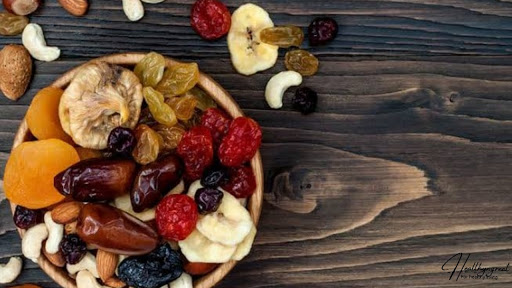

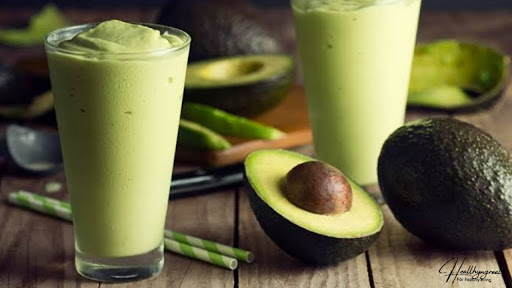
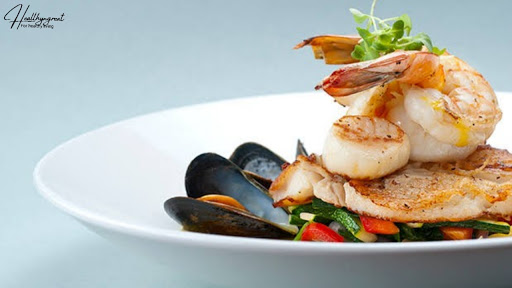
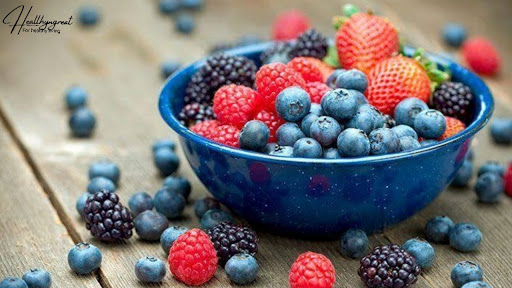

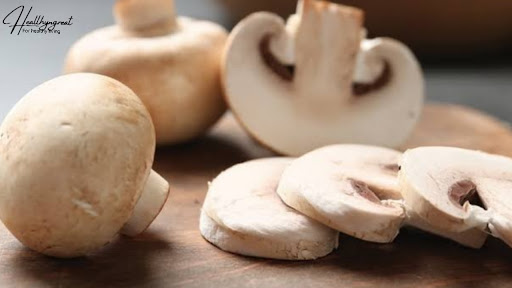

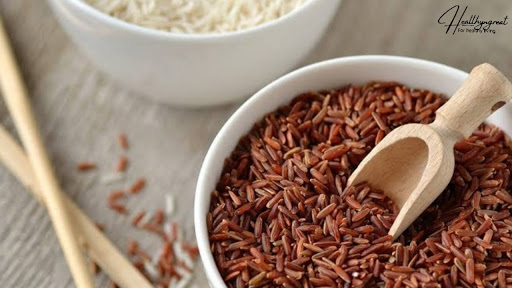







Post a Comment
0 Comments
If you have any doubt please let me know.